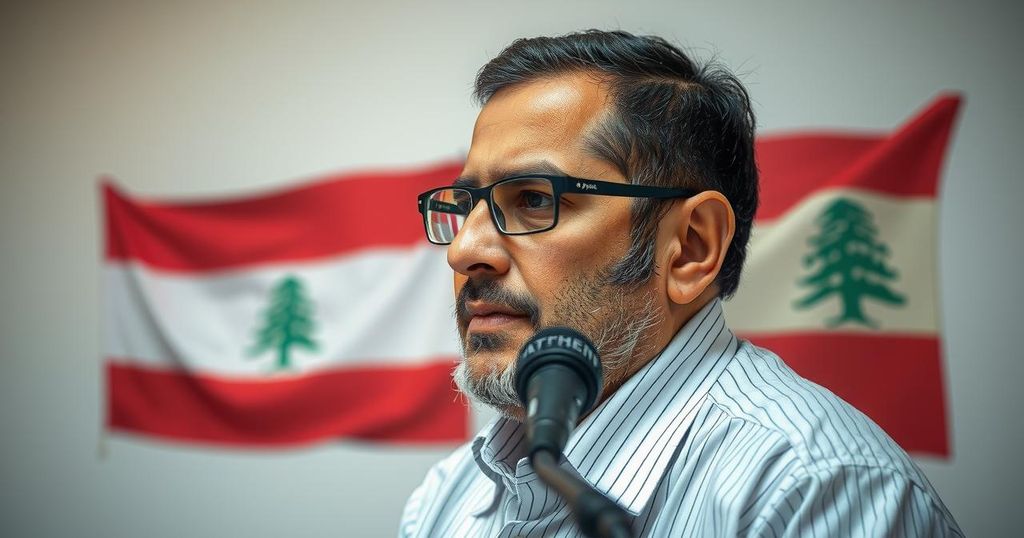Lebanon plans to deport Egyptian dissident Abdul Rahman Yusuf to the UAE following his recent detention for celebrating the fall of Bashar al-Assad. Yusuf, a critic of President el-Sisi, faces potential persecution if extradited. Amnesty International has urged Lebanon to reconsider, citing concerns over human rights violations.
Lebanon has confirmed its decision to deport Egyptian dissident Abdul Rahman Yusuf to the United Arab Emirates. Yusuf, who is known for his vocal criticism of both Egyptian President Abdel Fattah el-Sisi and the Syrian regime under Bashar al-Assad, was detained upon returning to Lebanon from Syria, where he celebrated Assad’s fall. His social media videos expressing hope for future revolutions in various Arab nations gained significant attention, provoking calls for his deportation from government-affiliated media in Saudi Arabia and Egypt. Amnesty International has urged Lebanese authorities to reconsider the deportation, highlighting concerns over human rights violations that Yusuf might face in the UAE or Egypt.
The case has garnered considerable media coverage and public discourse regarding freedom of expression in Lebanon. Yusuf is the son of prominent cleric Yusuf al-Qaradawi, and his arrest has ignited discussions on the implications of his statements for regional politics. The Lebanese cabinet’s decision comes after substantial pressure surrounding his case, illustrating the delicate balance the country seeks to maintain between human rights commitments and diplomatic relations with the UAE and Egypt. Amnesty International’s concerns underscore the potential ramifications of deporting individuals to countries where they may face persecution.
Abdul Rahman Yusuf’s situation reflects broader themes of dissent within the Arab world, where governmental criticism often leads to severe repercussions for activists and dissidents. His statements in support of revolutions against tyranny resonate with ongoing struggles for freedom in several countries. The decision to deport Yusuf raises profound questions about Lebanon’s adherence to international law and norms regarding the treatment of individuals seeking refuge from political persecution.
Amnesty International’s Deputy Director for the Middle East and North Africa, Sara Hashash, stated: “Criticising the authorities is not a crime. Forcibly extraditing him to a country where he is likely to face persecution would be a flagrant breach of the principle of non-refoulement under international law.”
The deportation of Abdul Rahman Yusuf, an Egyptian dissident, has emerged as a significant political issue within Lebanon, reflecting the complex interplay between human rights, freedom of expression, and governmental pressure in the Arab region. As a vocal opposer of Egyptian President Abdel Fattah el-Sisi, Yusuf’s participation in celebrations following the fall of Bashar al-Assad in Syria has positioned him within a contentious political climate. His arrest has raised alarms among human rights organizations, which emphasize the importance of protecting individuals from extradition to countries where they may face persecution. This scenario exemplifies Lebanon’s struggle to uphold its legal obligations while navigating political relations with neighboring states, notably the UAE and Egypt.
In summary, Lebanon’s plan to deport Abdul Rahman Yusuf underscores ongoing concerns about human rights and the protection of free speech in the Arab region. The situation highlights the critical need for Lebanon to honor international laws regarding asylum protection, particularly in the face of legalization surrounding political dissent. The attention drawn by this case serves as a testament to the complexities surrounding governmental relations in the Middle East, as well as the challenges faced by dissidents speaking out against oppressive regimes.
Original Source: www.middleeasteye.net






